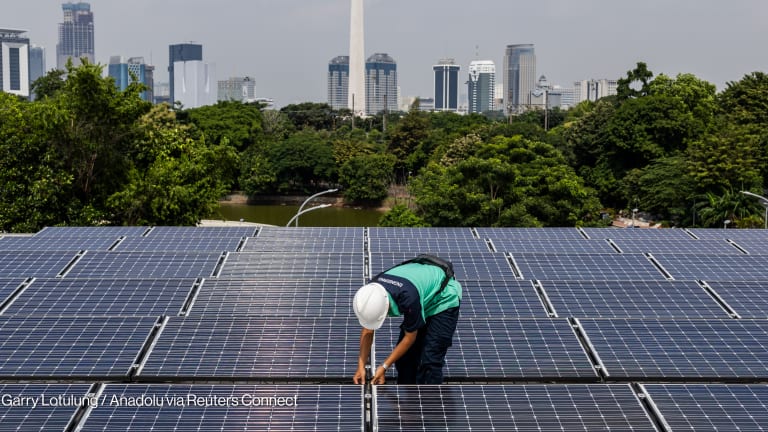As the world confronts energy poverty and the urgent need to combat climate change, renewable energy, and sustainable infrastructure are quickly becoming crucial tools for growth.
In a conversation at Devex World 2024, Enoh Titilayo Ebong, director of the U.S. Trade and Development Agency, and Manoj Sinha, CEO of Husk Power Systems, discussed their strategies for making clean energy accessible in underserved regions through innovative financing and local partnerships.
USTDA funds priority infrastructure projects in emerging economies, which in turn supports the exports of U.S. goods to these markets. Much of this support is directed toward feasibility studies and technical assistance for clean energy projects. Husk Power Systems, a renewable energy company, operates solar and biomass mini-grids that bring reliable energy to communities in Africa and Asia.
This story is forDevex Promembers
Unlock this story now with a 15-day free trial of Devex Pro.
With a Devex Pro subscription you'll get access to deeper analysis and exclusive insights from our reporters and analysts.
Start my free trialRequest a group subscription







